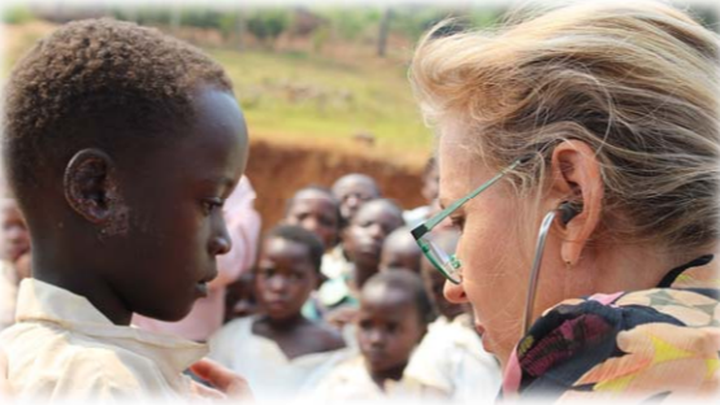
Transforming Children's Lives in remote DRC
Donation protected
TRANSFORMING CHILDREN'S LIVES ON IDJWI, THE "FORGOTTEN ISLAND"
A baby born today on Idjwi has a shockingly low prospect of reaching her 30th birthday -- less than half the average life expectancy across the lake on the mainland of the Democratic Republic Congo. In Rwanda, a few miles to the east, life expectancy is 70 years. Children's lives are cut short by a lethal combination of constant infection, catastrophic malnutrition, and little or no healthcare.
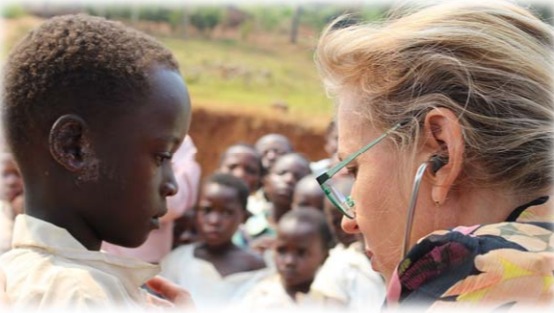
In the southernmost part of Idjwi, where I work with a local team, there is no healthcare at all. Before 2015, when I was first invited to visit Buhumba school, few children had ever seen a doctor. Since then, working with local volunteers, we treated at least 200 children every year for these live-shortening diseases, until Covid-19 forced a hiatus.
In a few days, I am returning to Idjwi, to reunite with 'Team Idjwi.' After three years this trip is critical to bring essential medicines for malaria, schistosomiasis and other deadly illnesses, to avert blindness from trachoma, prevent skin infections and strep throat from evolving into endocarditis and rheumatic heart disease, and treat the intestinal worms and parasites that make children too weak to walk to school and cause too much pain to learn, and to provide crucial nutritional support. And not just for 200 children--now, the need is greater, the children are sicker, and we anticipate needing to treat more than 1000 children. Because so many of these appalling diseases require repeat treatments, it will require another mission in six months' time, at a total cost of US$16,000. Please help us to give these children better lives and brighter futures.
Despite a life expectancy out of the Dark Ages, few people have heard of Idjwi, three times the size of Manhattan and home to 300,000 people. Idjwi’s island status and low profile has largely spared it the armed conflict that has plagues much of eastern Congo, but its isolation means that it has not benefited from the massive humanitarian aid delivered to the mainland, unknown to UN agencies and NGOs based in the humanitarian hubs of Goma and Bukavu at either end of Lake Kivu, unseen by aid workers who pass it by on daily ferries. The vast majority live without safe water, food security or sanitation. Electricity is uncommon and health services are rare. The north has two rudimentary hospitals and less than a dozen doctors. Those in the south have very little access to health services. For those on the southern-most tip, the only time people see a doctor is when we visit.
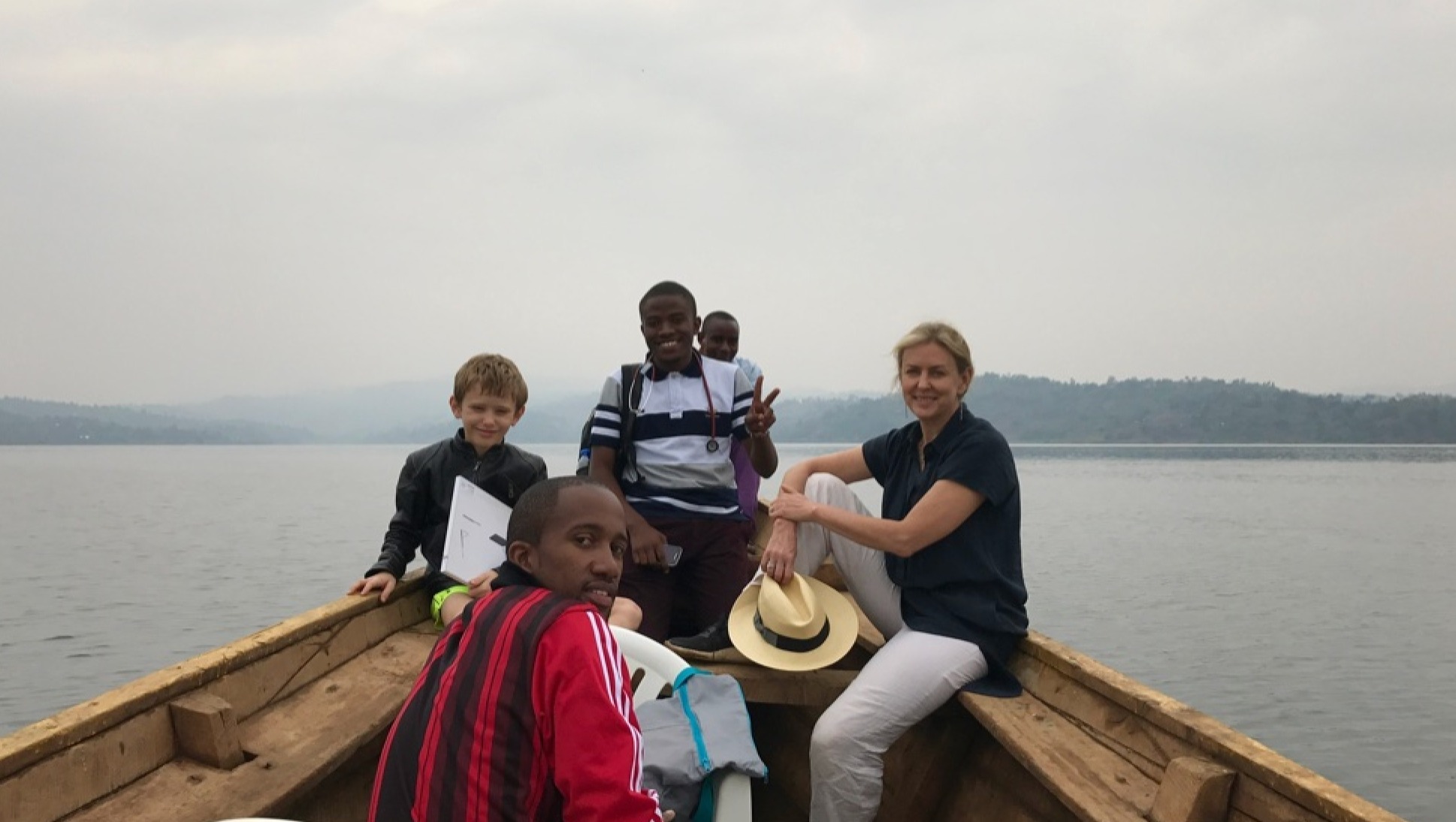
Malaria is the leading killer of infants and young children. Falciparum, the deadliest kind, is endemic. Mortality is much higher because extreme malnutrition magnifies the likelihood of dying from this and other treatable diseases. On my last visit (September 2019) 87% of children tested positive. Many were just a few months old. Using combination therapy, we treated more than 200 children successfully.
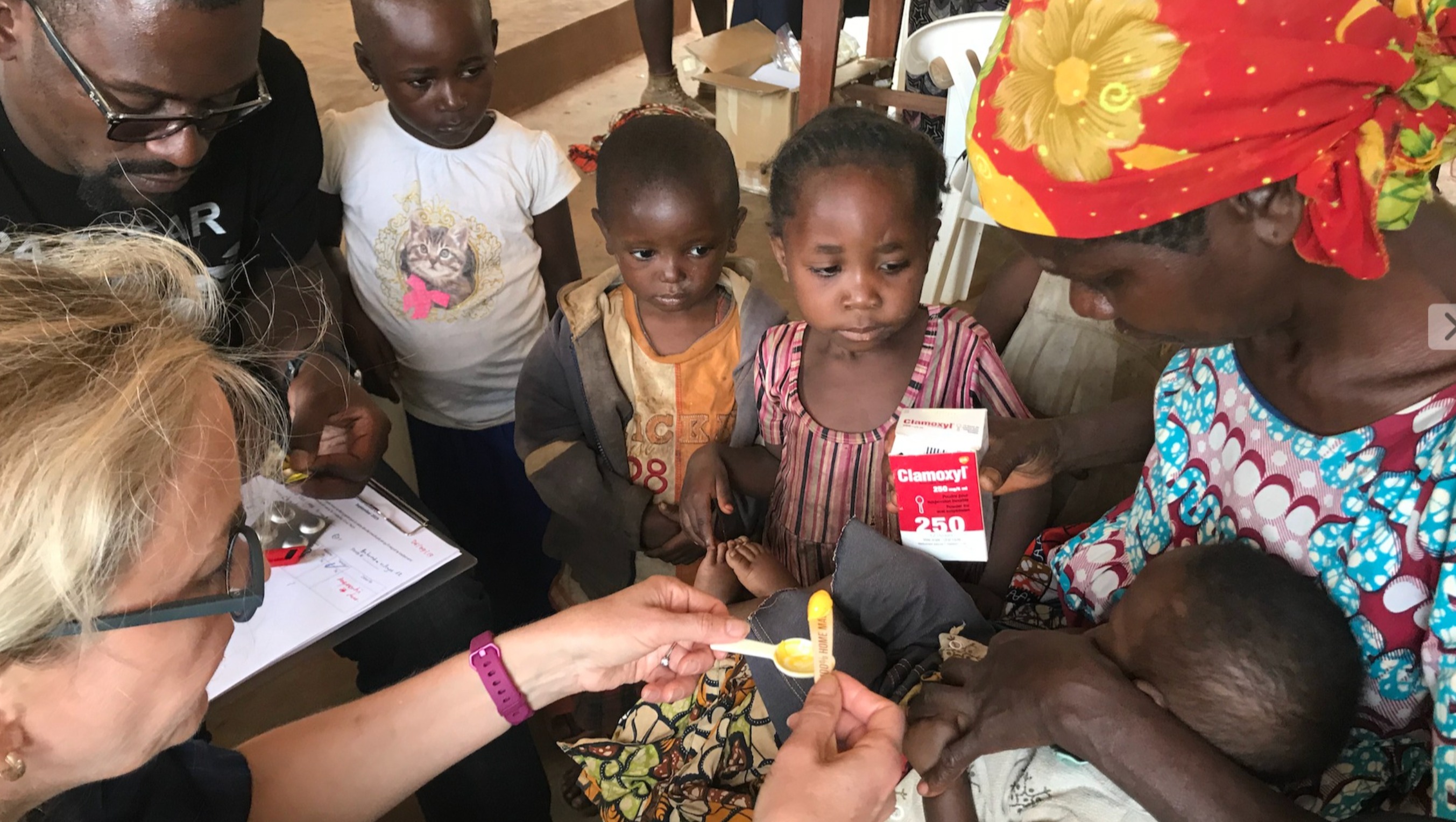
Lake Kivu serves as the source of water for the island – and of schistosomiasis, another parasitic infestation with devastating consequences if left untreated. Treatment (1-4 tablets of praziquantel) must be done yearly, as reinfection is common – since Lake Kivu also serves as a common bath: larvae from infected snails penetrate the skin when children and adults swim.
Gut infestations with worms hamper children's cognitive development and are a common reason for school absence. Intestinal worms and parasites such as Giardia steal nutrients from kids and the resultant anaemia makes them too weak to walk to school. When they are in school, the pain from intestinal worms makes it difficult for children to concentrate. Studies show that deworming students decreases absenteeism by as much as 25 percent. We will treat all children with Albendazole and mebendazole for soil-transmitted helminths and tinidazole (for giardia)
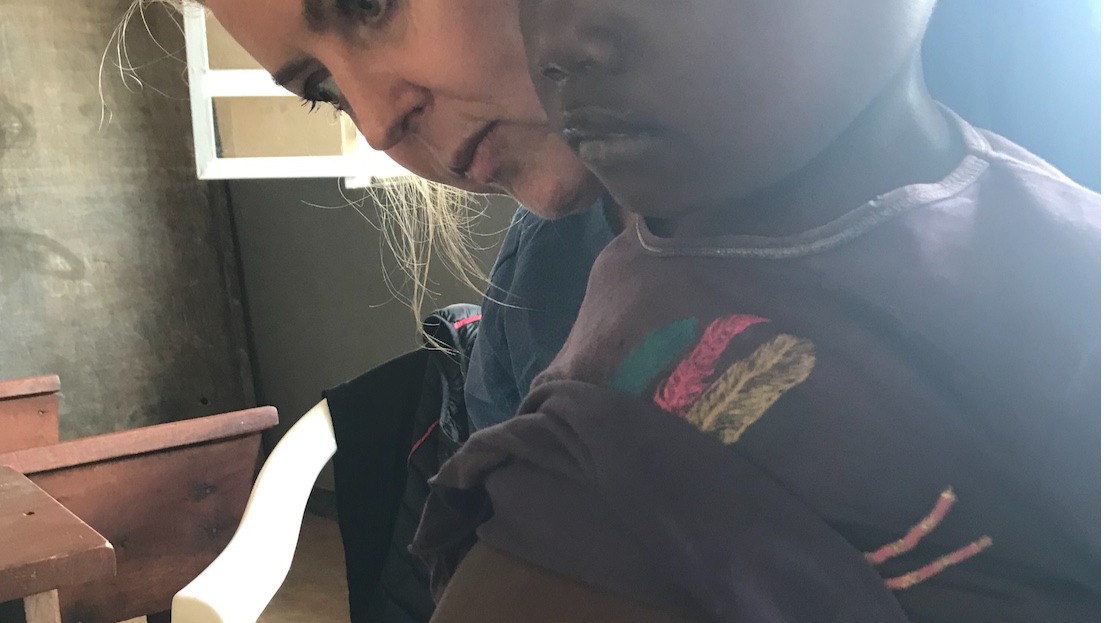
Trachoma, a bacterial eye infection spread by flies, is common. Untreated, it turns into trichiasis – (eyelashes turn inwards and scratch the cornea) causing irreversible blindness. On Idjwi, the lack of sanitation means waste sites become breeding grounds for flies. Large families (an insurance policy against the high child death rate) are crowded into unhygienic huts. Without enough water to wash hands and faces, trachoma spreads easily between children. Caused by Chlamydia trachomatis, trachoma is effectively treated with azithromycin.
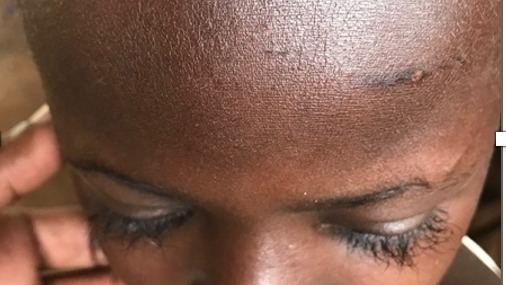
Local Partner -- Idjwi Island Education Fund
The main focus of the IIEF is the Buhumba primary school on the southern tip of Idjwi. It has several hundred students, almost half girls -- evidence of the local recognition of the importance of education. Since 2015, Dr. Annie Sparrow, a pediatrician and public health specialist from the Icahn School of Medicine at Mount Sinai, has been working with the Idjwi Island Education Fund to provide child health services and train local health workers.

Dr. Samy Shamamba -- a medical student 2017-2019, now graduated and working under Dr Jean Muyembe, but still an essential part of 'Team Idjwi'.
The first visit in August 2015 led to an impromptu, on-the-spot clinic. Scores of sick children, who otherwise had no chance to see a doctor, lined up for hours as she diagnosed and treated them for malaria, pneumonia, eye and skin infections, parasites, and poxes -- until time and medicines ran out. Teachers and parents reported that after the two-day visit, the children looked and said they felt better. They derived immense satisfaction from seeing worms pooped out of their bellies. They had much more energy and fewer symptoms of the disease. It was a great start to the 2016 academic year. That first visit led to a longer-term relationship with IIEF. Annual visits since working with and training local health personnel has led to growing demand -- parents bring younger siblings of students to Buhumbu school; mothers walk several miles or come in canoes to bring sick babies. In 2019, we tested and treated more than 200 children for malaria, and dewormed the whole school. As word on the island spreads of my return, we anticipate being asked to see large numbers of children of all ages. We also do pop-up clinics on Iko island.

HIGH IMPACT
For the majority on Idjwi Island, used to short, dark lives, long and healthy life is unimaginable. Our team is turning that around. The incredibly high mortality rate and lack of healthcare mean that our impact is immediate. Because so many children are critically ill, and all of them are malnourished, providing healthcare can make the difference between life and death, between blindness and sight, between being healthy enough, or not, to walk the one-to-five miles to school -- to learn, to complete the school year, and ultimately to graduate. In short, it can make the difference between heartbreak and hope – and a brighter and longer future. It also lifts the health and well-being of the whole community. Together, we can make a difference to so many children's lives, so many futures, and lift the health of the whole community.
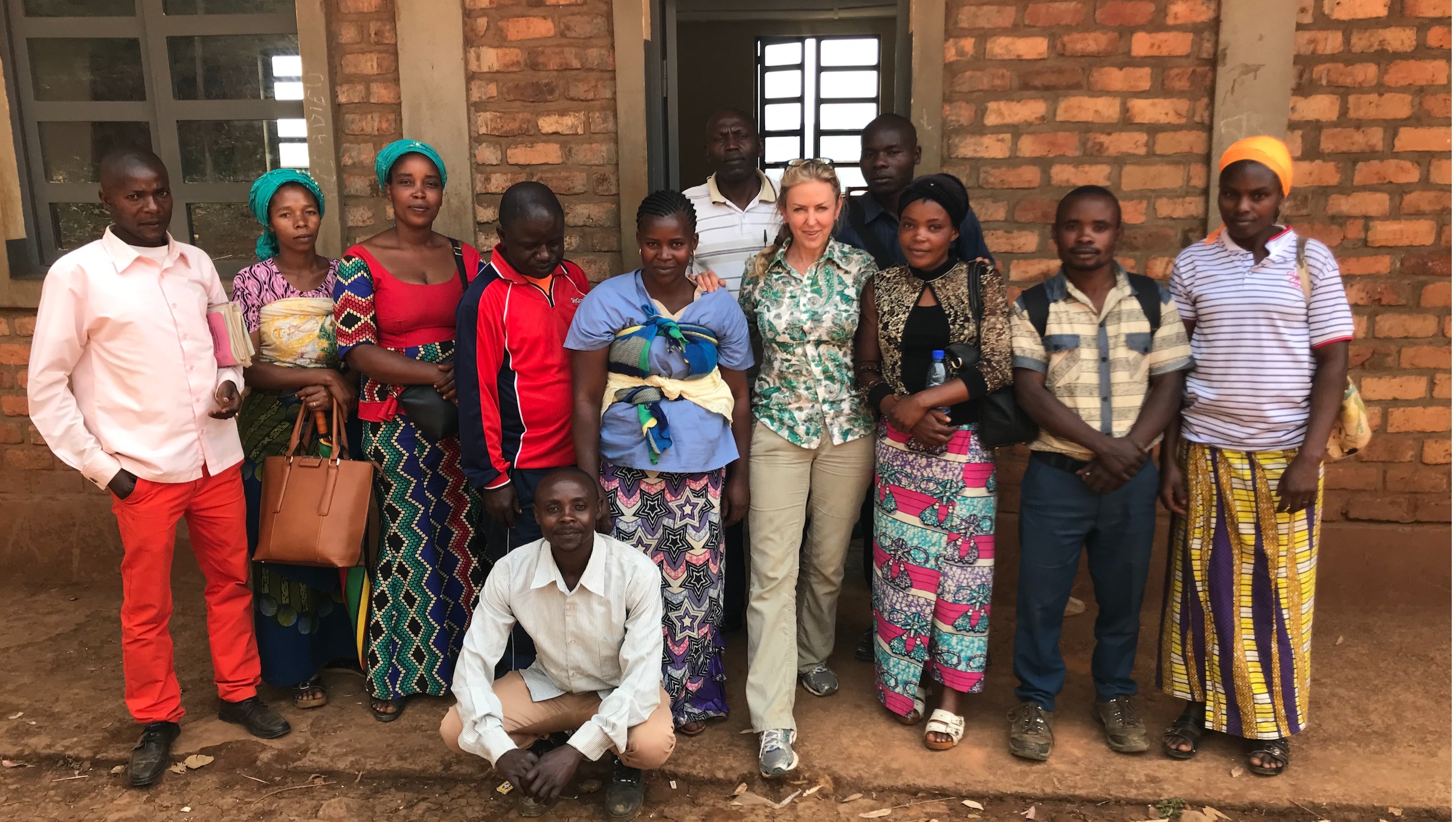
"Team Idjwi" in 2019 outside Buhumba Primary School.
Organizer
Annie Sparrow
Organizer
New York, NY


